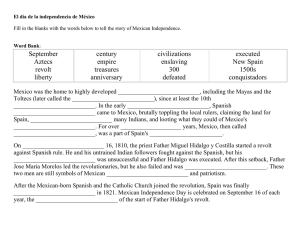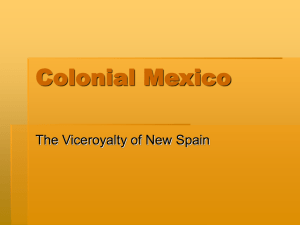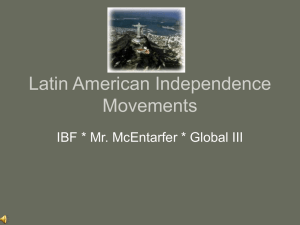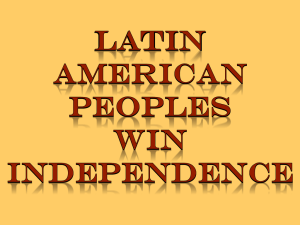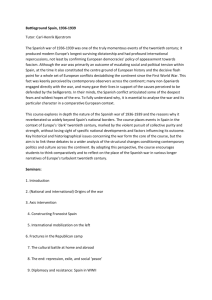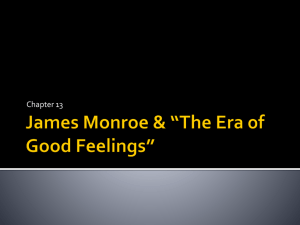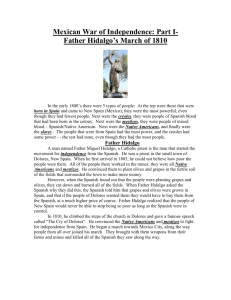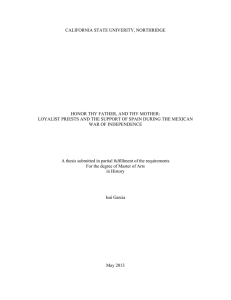Growing Unrest in New Spain
advertisement
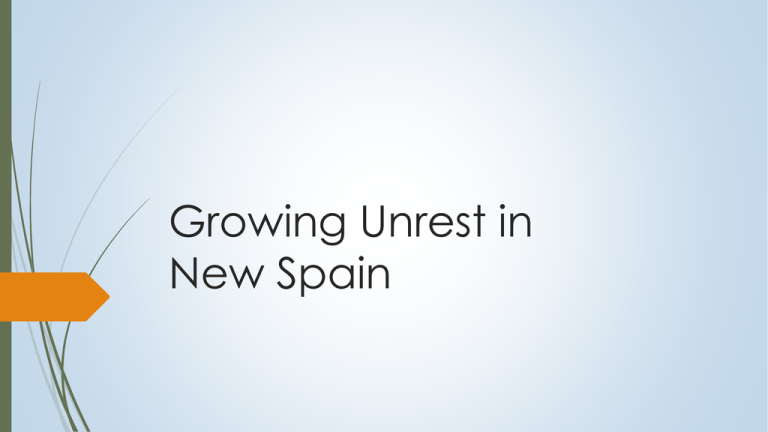
Growing Unrest in New Spain Problems in New Spain Taxes The residents of New Spain were forced to pay heavy taxes to help support the Spanish king and the many wars that Spain fought. When the king seized money from colonial churches in 1804, it hurt the whole economy. Many colonists, who had worked for the Roman Catholic Church, lost their jobs because the churches had no money left to pay them. Poverty Under Spanish control, colonists were excluded from the best jobs. Most went to government administrators. Spain’s class system kept most of New Spain’s residents in poverty. Spanish Class System Spain had a class system that divided its people into three classes: peninsulares, criollos, and mestizos. Peninsualres – These were Spaniards from Europe (born on the Iberian Peninsula) who occupied the highest class in society. They were given the best jobs and had the most money. Criollos – These were Spaniards that were born in the Americas. They were not treated as well as the peninsulares because they were not born in Spain. They still had good jobs and got some money though. Mestizos – These were the people of mixed Spanish and Native American heritage. They were not seen as true Spaniards because they were also part Native American. They did not get very good jobs and lived in poverty. Native Americans – They were at the lowest place in society. Native Americans could not get good jobs and had little chance of escaping poverty. Grito de Dolores (Cry of Dolores) Early on the morning of September 16, 1810, a priest from the farming village of Dolores in New Spain named Father Miguel Hidalgo y Costilla issued a grito, or cry, for rebellion against the peninsulares. The criollos refused to support the revolt, but the mestizos and the Native Americans joined Hidalgo. Only a few months after Father Hidalgo’s revolt began, he was captured and executed for treason. Though Father Hidalgo’s revolt failed, it inspired other uprisings in New Spain to free the area from Spanish rule.
